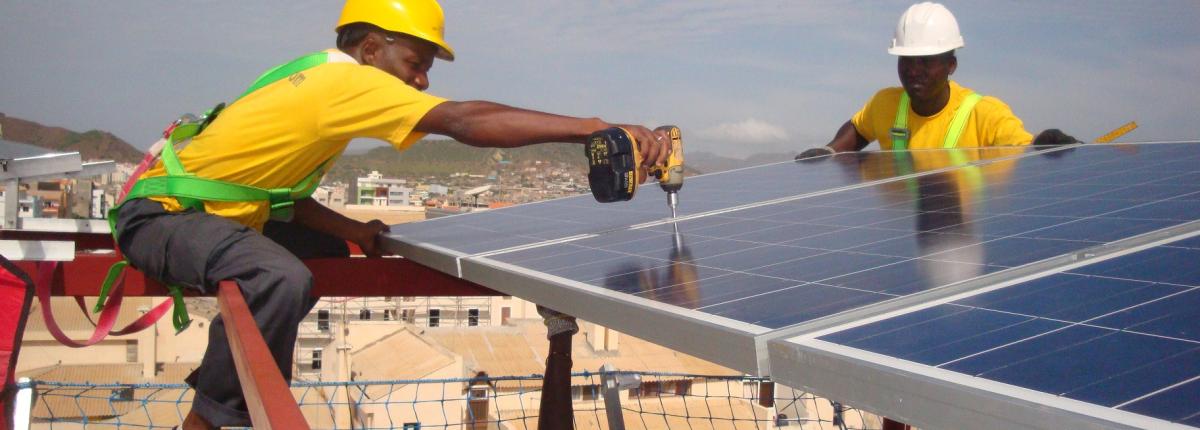
International Network of Solar Technology and Application Resource Centres (STAR C)
![]()
![]()

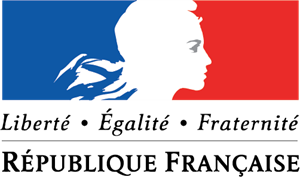
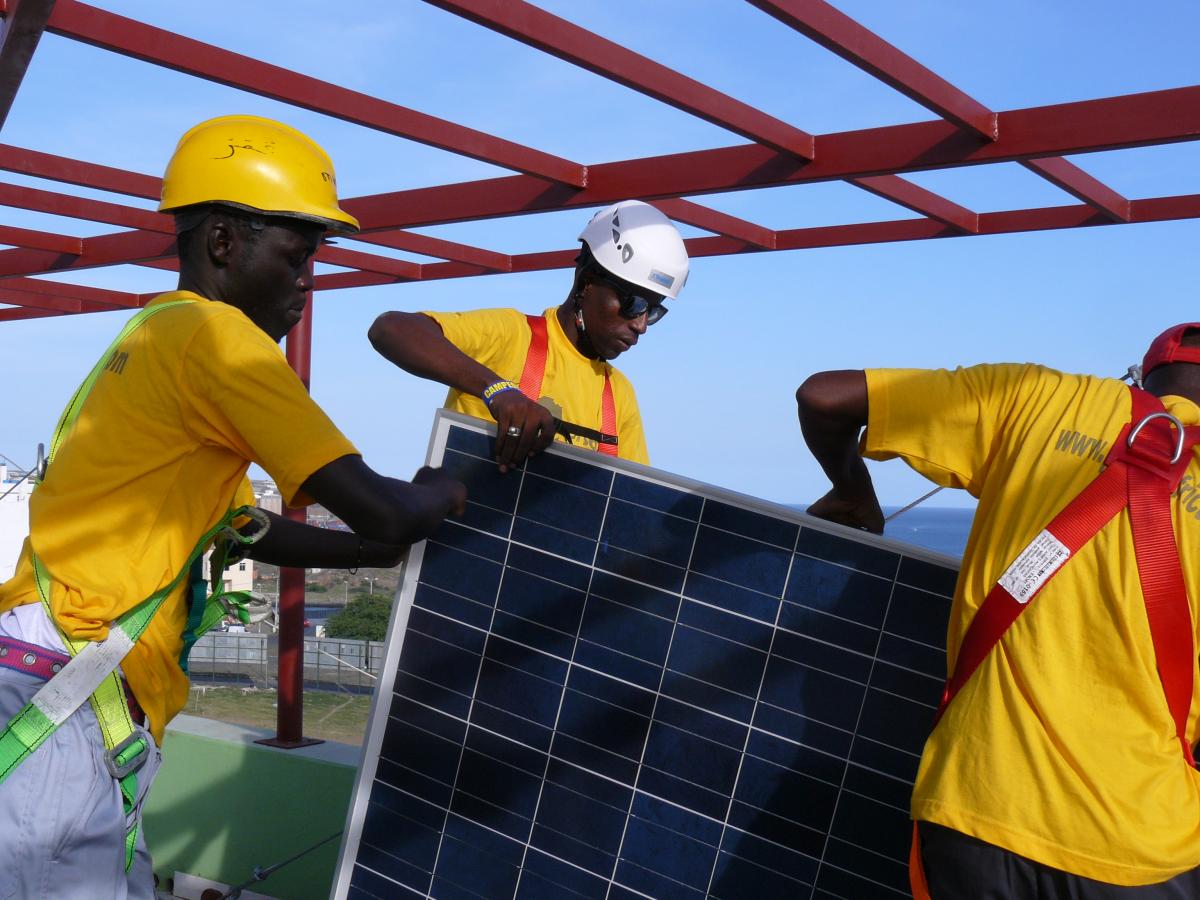
Introduction
The International Solar Alliance (ISA) and the United Nations Industrial Development Organization (UNIDO), with funding of the Government of France, are implementing the project „Structuring of an International Network of Solar Technology and Application Resource Centres (STAR C)”. The overall objective is to create a strong network of institutional capacities within ISA Member States to enhance quality infrastructure (QI) for the uptake of solar energy product and service markets, particularly in least developed countries (LDCs) and small island developing states (SIDS).
The first phase of the STAR C project will focus on the Economic Community of West African States (ECOWAS), the East African Community (EAC) and the Pacific Community (SPC)/Pacific Island Forum (PIF). To have more impact and to create economies of scale, the STAR C has adopted a regional approach, which facilitates cross-border harmonisation of solar product, service and qualification standards, pooling of resources and joint implementation on national level. In a first step, STAR C will assist the three economic communities in strengthening the regional solar QI frameworks and management systems in partnership with the national standardisation bodies.
Past QI interventions of UNIDO have proven the added value and benefit of regional approaches. In this context, UNIDO has supported several economic communities, including ECOWAS, EAC and SPC, in the establishment of QI policies and regional energy centres under the Global Network of Regional Sustainable Energy Centres (GN-SEC) program. The STAR C is part of the south-south and triangular activities of the centres under the GN-SEC platform. The STAR C implementation will benefit for the established institutional infrastructure and lessons learned of these interventions.
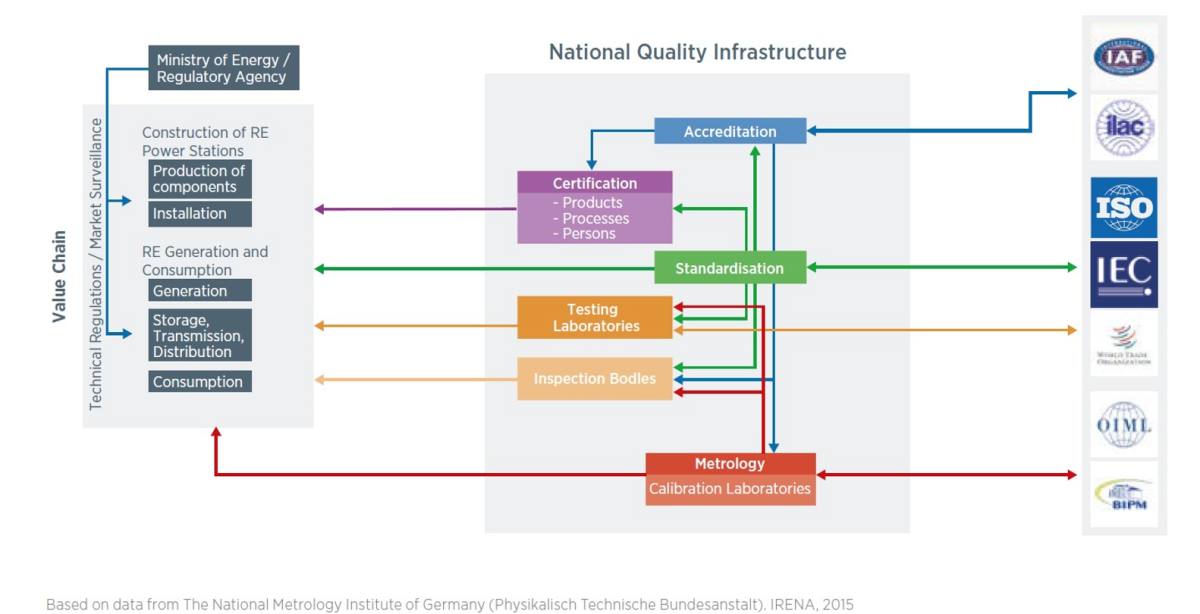
The STAR C project builds a strong partnership with the GN-SEC centres and regional QI infrastructure bodies and their national focal institutions (e.g. energy ministries and national standardisation bodies). ECREEE in Cape Verde, EACREEE in Uganda and PCREEE in Tonga are already involved to some extend in regional standardisation processes and facilitate regional adoption and convening of key stakeholders (e.g. ministries, standardisation bodies, training and testing institutes) within the respective region.
For example, in the Pacific island region there exist already published technical guidelines for various renewable energy technologies, including PV and solar thermal, referring to international or Australian standards. Moreover, also on continental level, the African Electrotechnical Standardization Commission (AESC) hast started to work with the GN-SECs on regional standards.
As an outcome, the establishment of equivalent and trusted QI capabilities will help to create a level playing field for solar energy businesses in the regions to compete. Regional cooperations may also agree to share the costs involved in establishing QI institutions by developing regional bodies with mandates related to standardization or accreditation. There can also be arrangements for the sharing of testing and certification services. Such initiatives can assist countries to cost effectively and sustainably address their needs related to standardization, metrology, accreditation and other QI capabilities.
Governance:
The STAR C project is jointly implemented by ISA and UNIDO and is supervised by a Supervisory Committee (SC). The project will be executed in partnership with ECREEE, EACREEE and PCREEE and other regional and national key stakeholders.The project includes the recruitment of regional coordinators at the three centres.
Challenges addressed by STAR C:
Quality infrastructure (QI) builds the credibility necessary for the creation of healthy, efficient and rapidly growing solar technology markets and ensures that expectations from investors and end-users for technology performance, durability and safety are met. Product and service quality standards are an important prerequisite for the long-term sustainability of solar markets and investments, as well as trust of consumers, suppliers and financiers. QI is also a key requirement for an inclusive energy transition, which creates local solar jobs, income and empowers domestic companies to participate in global or regional value chains of solar manufacturing and servicing.
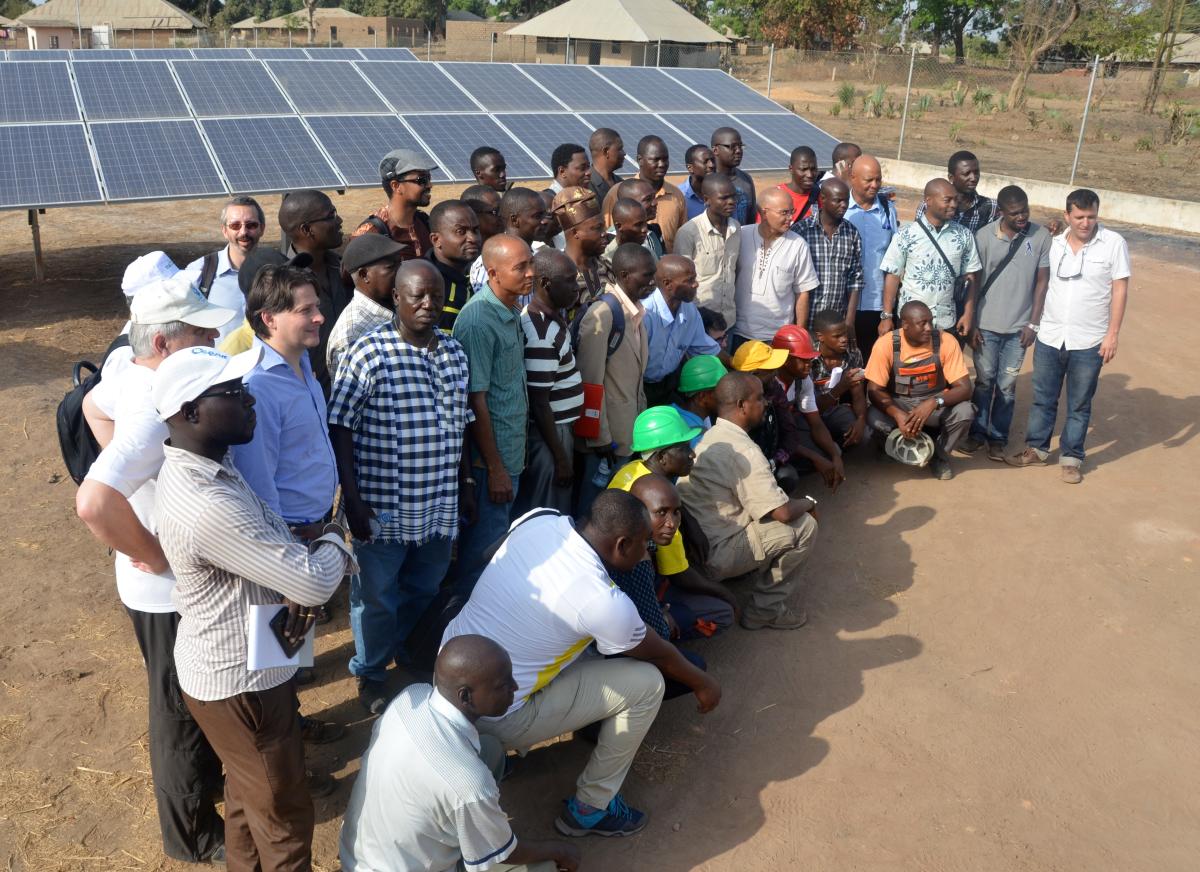
Globally, more than one hundred international standards relevant for renewable energy technologies have been published by the International Electrotechnical Commission (IEC) and the International Organisation for Standardisation (ISO). A significant part are dedicated to standards for PV technologies. These standards cover every aspect of PV energy systems, from solar cells converting solar radiation into electricity, to the manufacturing of solar panels, to aggregating and operating large-scale PV systems.
International standards for SHC have been mainly developed by the ISO. They define test methods for solar thermal collectors, specific components and complete systems. These core standards are complemented by regional or national standards, which address specific conditions or requirements linked to local regulations.
In the growing markets of developing countries, assurance of product quality is crucial for all components and throughout the value chain of solar photovoltaic (PV) and solar thermal heating and cooling (SHC) systems. However, in many countries, quality control of imported off-grid, distributed or utility-scale solar products is lacking and the market is exposed to low-quality imports. Maintaining quality controls for solar photovoltaic components, solar thermal components and complete thermal systems is further complicated by the large number of component providers active on the global market.

Regarding the manufacturing of components the situation differs per region and technology. For example, in Sub Sahara Africa and Pacific islands, there are only a small number or no manufacturers and most PV modules and inverters are imported. In contrast, various Sub-Saharan African countries are manufacturers of solar thermal component and quality assurance for manufacturing is important. A good example for a SIDS country is Barbados, which has a very high solar thermal penetration per capita and produces most of the systems locally.
Particular challenges in LDCs and SIDS arise also due to the lack of qualification, know-how and experience regarding quality installations. A study by TÜV Rheinland identified that, throughout the world, installation faults were the cause of more than 50% of serious defects in PV plants. Incorrect installation, often due to minor errors such as loose screws or incorrectly inserted connectors, can thus have devastating effects on plant performance and financial returns. Also the installation of SHC systems requires solid knowledge and can result in complete failure of the system if carried out incorrectly. A number of countries had negative experiences with solar thermal water heaters. Therefore, there is need to invest in reliable and specialised qualification and certification schemes targeting various enablers of the solar value chains, incusing consumers.
A national QI framework for solar PV and SHC comprises institutions in charge of metrology, standardization, accreditation, conformity assessment and market surveillance, as well as the related policy, services and legal and regulatory frameworks. However, particularly in LDCs and SIDS, the solar mechanisms, processes and standards are often not well established, fragmented or hardly implemented.
Moreover, there is no equal progress and harmonisation between countries remains weak. This hinders the uptake of regional trade and value chains for sustainable energy products and services, including within the envisaged African Continental Free Trade Area (AfCFTA). There is need to connect these regions to international best practice of solar QI. However, currently there is only very limited international support for the creation of renewable energy QI systems in developing countries.
STAR C project contacts:
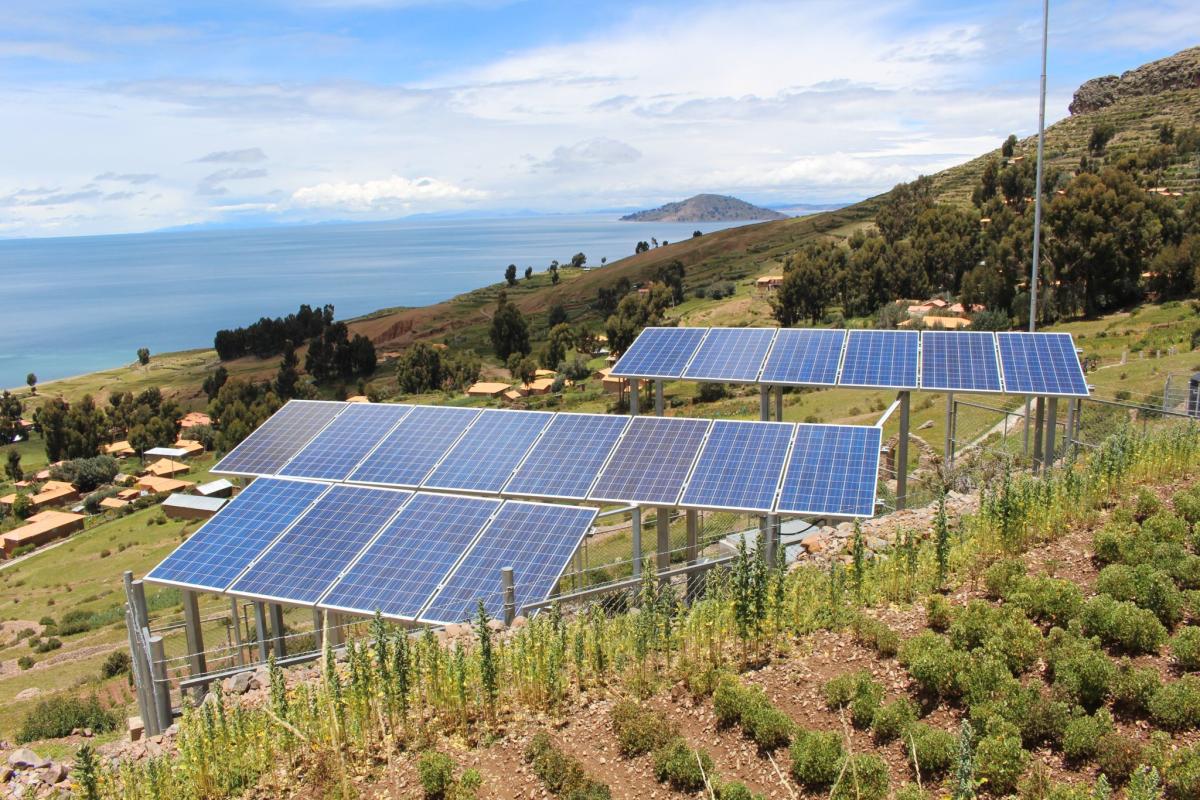
UNIDO: Mr. Martin Lugmayr, Industrial Development Expert, Mr. Andrea Eras Almeida, Renewable Energy Project Expert
ISA: Mr. Saba Kalam, Programm Specialist
E-Mail to the team: starc@gn-sec.net
